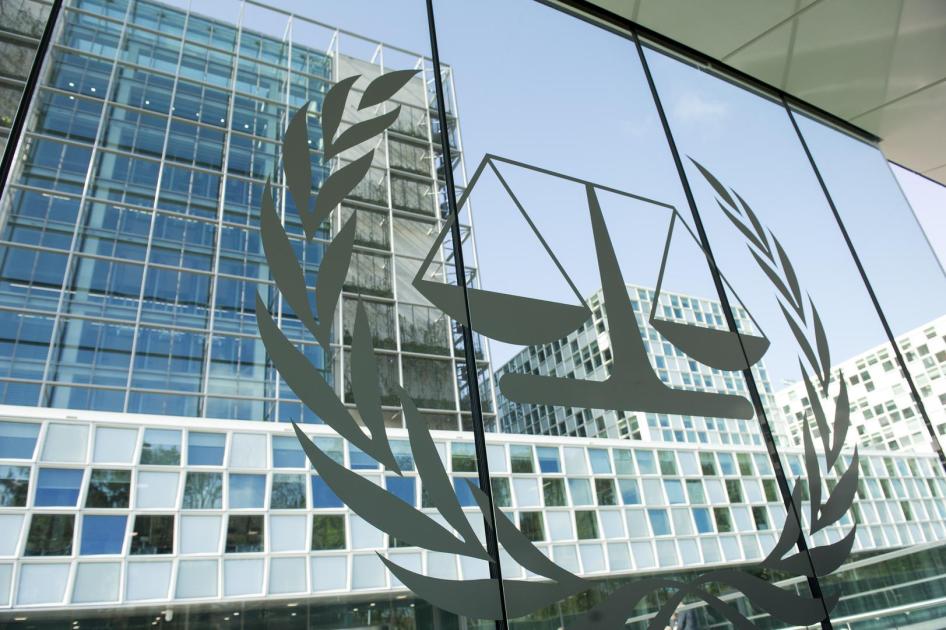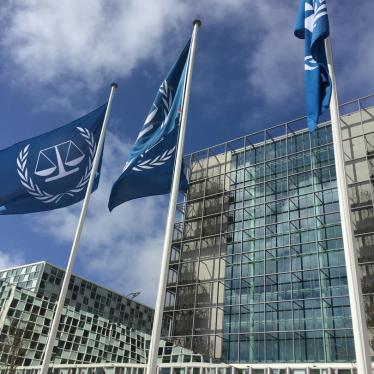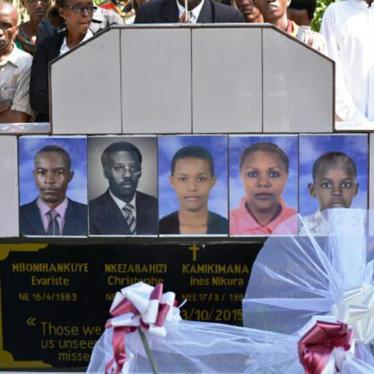(Johannesburg) – South Africa’s announced withdrawal from the International Criminal Court (ICC) treaty represents an enormous blow to its commitment to justice for atrocity crimes, Human Rights Watch said today. ICC members committed to accountability for the gravest crimes should reaffirm their support for the court at this time.
On October 21, 2016, South Africa’s foreign minister, Maite Nkoana-Mashabane, announced that South Africa had submitted a notice to United Nations Secretary-General Ban Ki-moon of its intent to withdraw as a party to the Rome Statute, the treaty that established and governs the ICC. Notification is necessary to trigger the withdrawal, which comes into effect a year after such notice is given.
“South Africa’s withdrawal would be a huge reversal of its role as a leader promoting victims’ rights and the values in its post-apartheid constitution,” said Richard Dicker, International Justice director at Human Rights Watch. “It’s also unclear whether the South African government followed its own laws, not least because it did not consult parliament.”
South Africa is the only government that has given notice to withdraw its membership of the court since historic creation of the court in 1998. The court’s mandate is to hold perpetrators of genocide, war crimes, and crimes against humanity to account when national courts are unable or unwilling to prosecute them for their crimes.
Prior to South Africa’s notification of withdrawal, Burundi’s Parliament passed a law for ICC withdrawal. The government of Burundi, however, has not submitted any notice to the UN secretary-general, which is needed to begin the withdrawal process.
Distinguished jurists and advocates in South Africa expressed dismay that their government submitted a notification of withdrawal without parliamentary authorization. Former South African Constitutional Court judge Richard Goldstone called the move unconstitutional. Goldstone was also the first chief prosecutor of the International Criminal Tribunal for the Former Yugoslavia and the International Criminal Tribunal for Rwanda. The Democratic Alliance, one of South Africa’s main opposition parties, and the Southern Africa Litigation Centre, a prominent human rights organization, signaled they may challenge the move in South Africa’s courts.
Nkoana-Mashabane claimed that a reason for South Africa’s withdrawal is that the government cannot conduct peace negotiations with parties in armed conflict because of its obligations to the ICC. However, the ICC treaty does not bar any active role in peace negotiations.
“South Africa’s leading role in developing principles for an effective and independent court makes the Zuma government’s decision especially troubling,” said Dicker. “South Africa has made a profoundly negative decision for victims and the rule of law.”
The Southern Africa Development Community (SADC) developed 10 principles on the establishment of the ICC at a meeting convened by South Africa in Pretoria in September 1997. These principles were a major positive contribution to the court’s effective creation, and represented a strong commitment by South Africa and the rest of SADC for a permanent, global war crimes court.
South Africa’s withdrawal from the ICC has been met with an outcry from activists across Africa. In a statement issued on October 21, African groups and international organizations with a presence in Africa called the move “a devastating blow for victims of international crimes across Africa” and urged other African ICC members – including Ivory Coast, Nigeria, Senegal, and Tunisia – to publicly affirm their support for the court.
Senegal’s minister of justice, Sadiki Kaba, who is the president of the ICC’s 124-member Assembly of States Parties, has asked South Africa to reconsider its position and “to work together with other States in the fight against impunity, which often causes massive violations of human rights.” Kaba is to hold a news conference in Dakar on October 24 on the issue.
South Africa’s withdrawal takes places amidst a backlash against the ICC emanating from Sudan and Kenya, both of whose leaders have faced charges by the court. Attacks on the ICC focus on claims that the court is targeting Africa.
While all but one of the ICC’s investigations to date are in Africa, the majority have been initiated following a request of an African government.
However, the ICC works in a global landscape where the disparity of political, economic, and military power is stark. A number of the most powerful countries, including three permanent members of the UN Security Council – Russia, China, and the United States – and their allies have not joined the court and have thus been able to avoid ICC scrutiny. The permanent members of the security council have used their veto privilege to block referral to the ICC of situations desperately in need of justice in countries that are not ICC members, including Syria.
Since 2009, activists across Africa have joined with international groups to call for African governments to support and strengthen the ICC, instead of undermining it.
“African states played a foundational role in creating the ICC, which marked a significant shift towards ensuring that no one is above the law and everyone deserves justice,” said Dicker. “We need to strengthen the court’s delivery of justice and extend its reach to more countries. But the goal of justice, including redress and reparations for victims, is too important to throw away because of flaws in the global system.”
Background
The South African government’s move comes after it hosted Sudanese President Omar al-Bashir at the African Union Summit in South Africa in June 2015. Al-Bashir is the subject of two ICC arrest warrants on charges of genocide, crimes against humanity, and war crimes allegedly committed in Darfur. South African courts confirmed the government had a duty to arrest al-Bashir.
The ICC has opened investigations in five African countries following requests by their respective governments: Central African Republic, Côte d’Ivoire, Democratic Republic of the Congo, Mali, and Uganda. The UN Security Council referred the situations in Libya and Darfur to the court. Kenya is the only African situation where the ICC acted without a request from the government or referral from the UN Security Council.
The ICC also opened an investigation in Georgia after the 2008 war. And the prosecutor is conducting preliminary examinations in Afghanistan, Burundi, Colombia, Gabon, Guinea, Nigeria, Palestine, Ukraine, and alleged crimes attributed to the armed forces of the United Kingdom deployed in Iraq.









